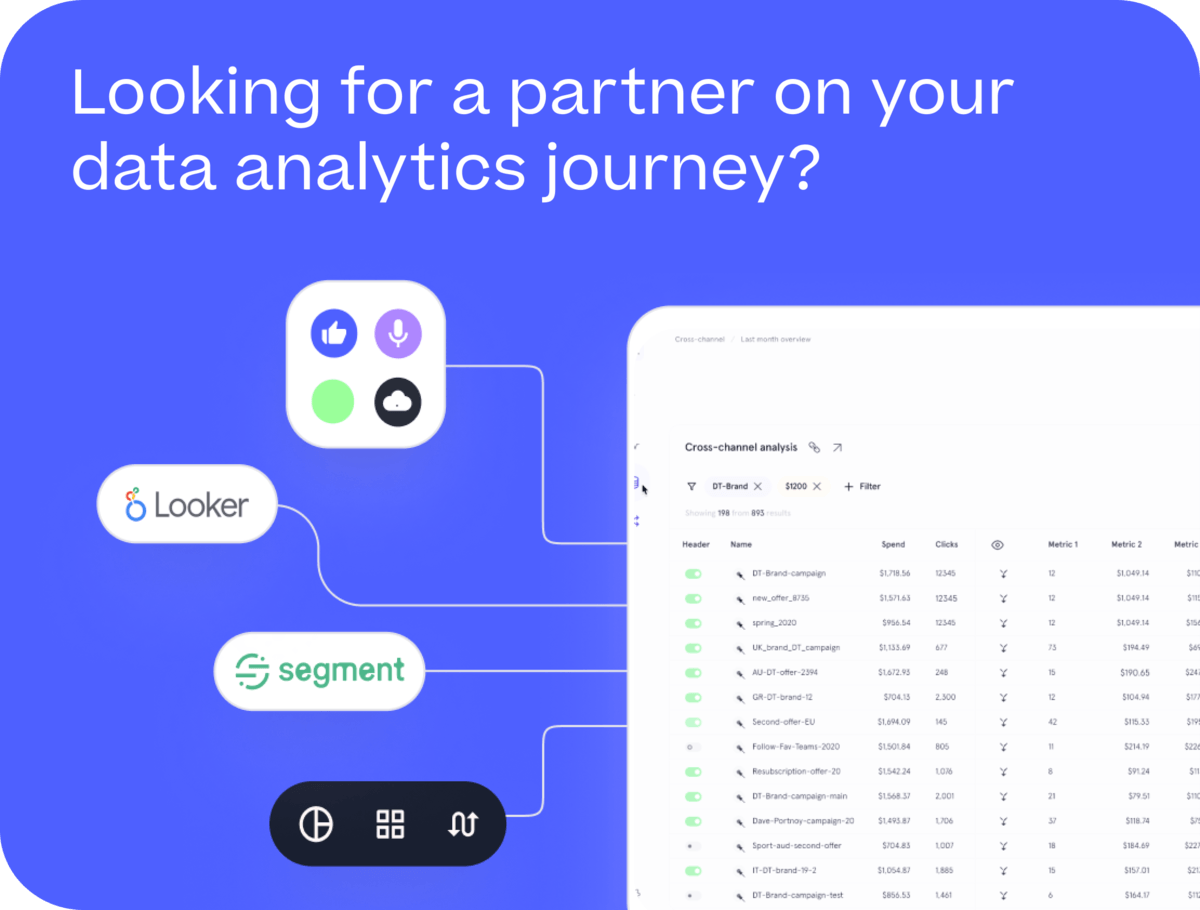Is Your Business Ready and Enabled For Generative AI?
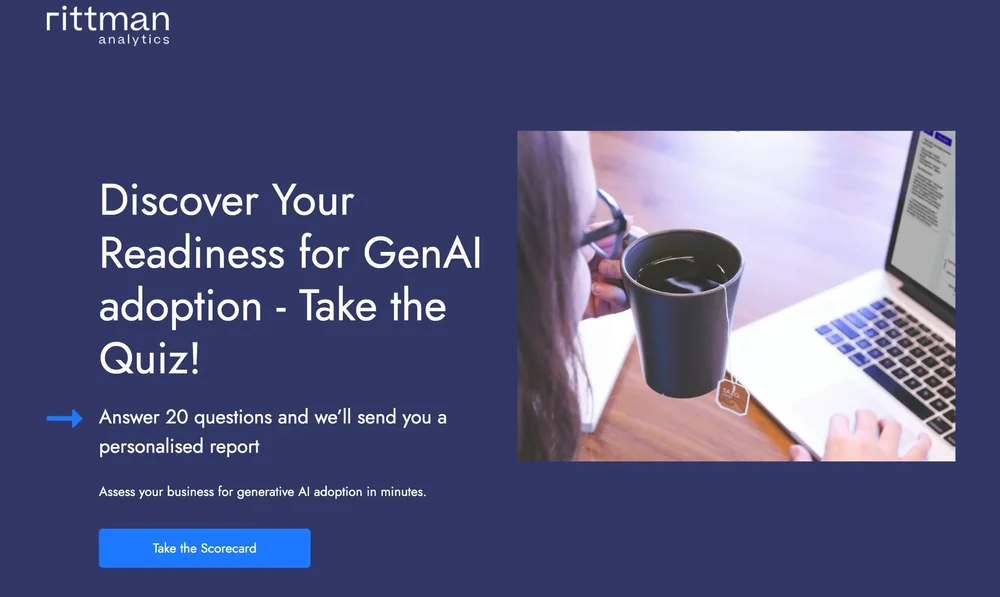
Before you dive into your first generative AI (or “Gen AI”) implementation it’s crucial to have a clear understanding of how this technology will benefit your business, how it will impact on your operations and whether you have the culture, skills and capability to deliver it effectively.
Every business and organisation we speak to wants to adopt Gen AI — to drive business value, improve decision-making processes and to stay competitive when everyone else in their industry is adopting this game-changing new technology.
For example we’ve just been helping a major UK retailer adopt Gen AI to automate the delivery of actionable insights to their regional sales team, and we’ve just enabled a major SaaS entertainment platform to evaluate conversational agents powered by Gen AI as way of providing data and analytics to promoters while reducing their operational costs.
Take our online quiz to see how well prepared you and your business are for adopting Gen AI, or read the rest of this article and find out what you need to know — and how we can help you get started and your first prototype deployed.
So what does it take to make a success of your first Gen AI implementation? Here’s what we’ve learned makes the difference between project success or failure…
1. Do You Have A Clear Set of Use-Cases and Organisational Goals?
Before diving headfirst into generative AI, it’s essential to have a clear roadmap. This means identifying specific, value-driven use cases that align with your business objectives. Ask yourself:
Does your organization have specific, high-value applications for generative AI that align with your strategic goals?
To what extent have you involved key stakeholders from various departments in defining these use cases?
Have you conducted a thorough cost-benefit analysis for each proposed generative AI initiative?
What measures have you taken to ensure legal and ethical compliance in your planned AI implementations?
How do you plan to measure and evaluate the success of your generative AI projects?
Without clearly defined use cases, organizations risk implementing generative AI haphazardly, leading to wasted resources, misaligned efforts, and failure to address critical business needs or capitalize on strategic opportunities
2. Does your Business Have Sufficient Analytics Maturity and Capability?
A strong foundation in data analytics is essential for successful generative AI adoption. Ask yourself questions such as:
How would you rate the integration and accessibility of data across your organization?
What advanced analytics techniques (e.g., predictive modeling, machine learning) are currently in use within your company?
How robust is your data governance framework, particularly concerning data quality and security?
To what extent does your team leverage cloud-based analytics platforms and tools?
How frequently do you update and refine your analytics processes and technologies?
Lack of analytics maturity can severely limit an organization’s ability to effectively leverage generative AI, potentially resulting in inaccurate insights, data quality issues, and an inability to scale AI initiatives across the enterprise
3. Does Your Organization Have and Encourage a Culture of Innovation?
A forward-thinking, innovative culture is vital for embracing generative AI. Consider these aspects of your organizational culture. Ask yourself:
How does your leadership team actively promote and support innovative initiatives?
What processes are in place to encourage and evaluate new ideas from employees at all levels?
How do you balance the need for innovation with maintaining operational stability and efficiency?
To what extent are teams empowered to experiment with new technologies and approaches?
How do you recognize and reward innovative thinking and risk-taking within your organization?
Without a culture that embraces innovation, organizations may face resistance to change, struggle with adoption of new technologies, and miss out on the transformative potential of generative AI, ultimately falling behind more agile competitors.
4. Do You Have the Right Set of Skills Within Your Team?
The success of generative AI initiatives heavily depends on having a skilled and adaptable workforce. Assess your team’s capabilities by asking yourself:
How would you evaluate your team’s current expertise in AI and machine learning technologies?
What ongoing training or upskilling programs do you have in place for AI-related skills?
How proficient are your team members in communicating complex AI concepts to non-technical stakeholders?
To what extent is your team familiar with AI ethics and responsible AI practices?
Have you identified any skill gaps that need to be addressed to support your generative AI initiatives?
Failing to cultivate the necessary skills within your team can lead to poor implementation, misinterpretation of AI-generated insights, and ethical missteps, potentially undermining the credibility and effectiveness of your generative AI initiatives
INTERESTED? FIND OUT MORE!
Rittman Analytics is a boutique data analytics consultancy that helps ambitious, digital-native businesses scale-up their approach to data, analytics and generative AI.
We’re authorised delivery partners for Google Cloud along with Oracle, Segment, Cube, Dagster, Preset, dbt Labs and Fivetran and our Data to AI Quickstart package can help you prepare and plan, enable your team and implement your first generative AI solution.

Over four weeks we’ll work with your business to:
Inform your team on the latest in Generative AI for analytics
Work with stakeholders to define your Gen AI strategy
Identify high-impact use cases specific to your business
Prototype an innovative proof-of-concept to validate the use-case
Enable your team by co-developing and implementing the solution
Check-out our Generative AI Services page on our website to discover our Gen AI use-cases or contact us now to organise a 100%-free, no-obligation discovery call to discuss your needs in more detail — we’d love to hear from you!
Recommended Posts
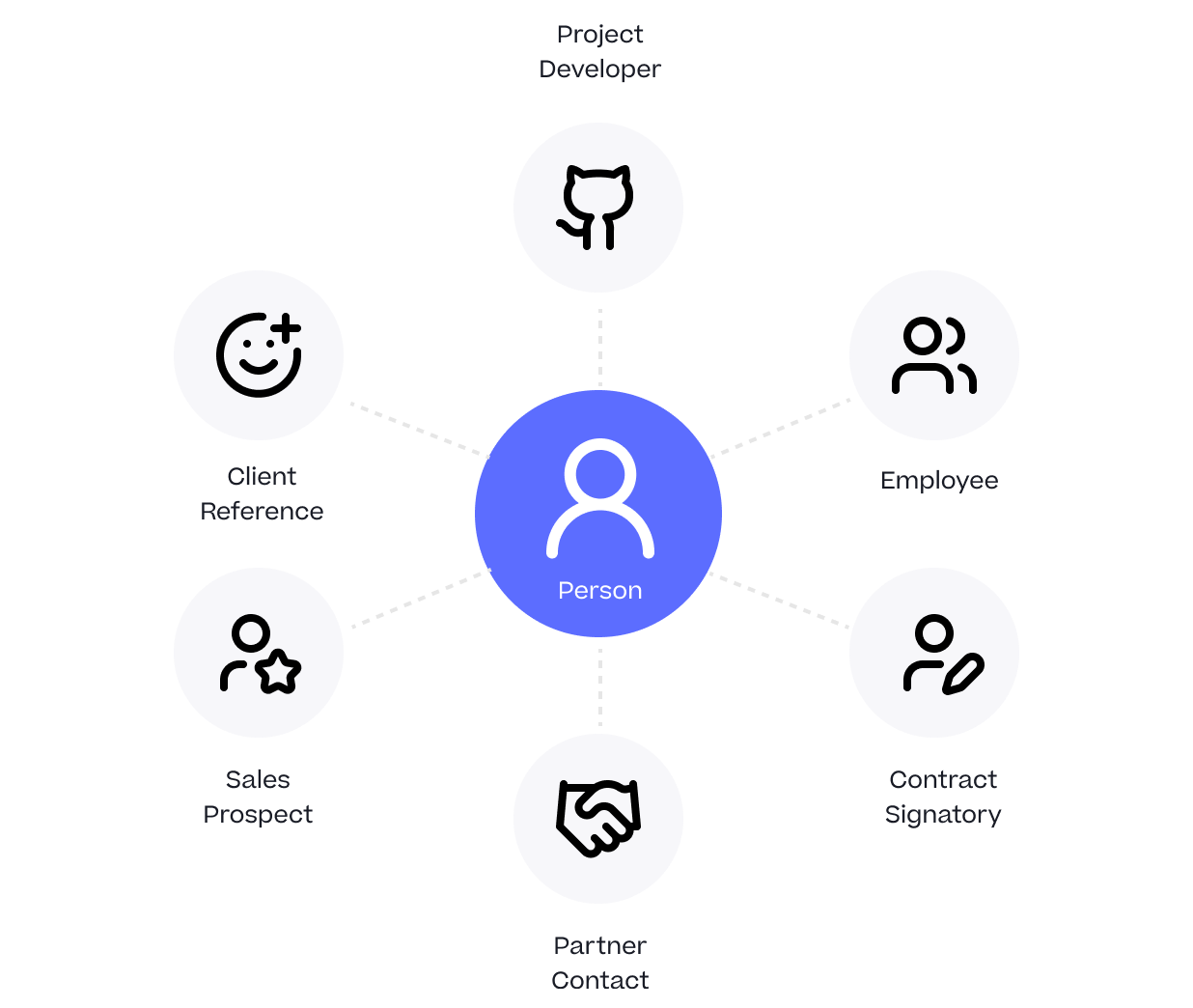
One Person Many Roles: Designing a Unified Person Dimension in Google BigQuery
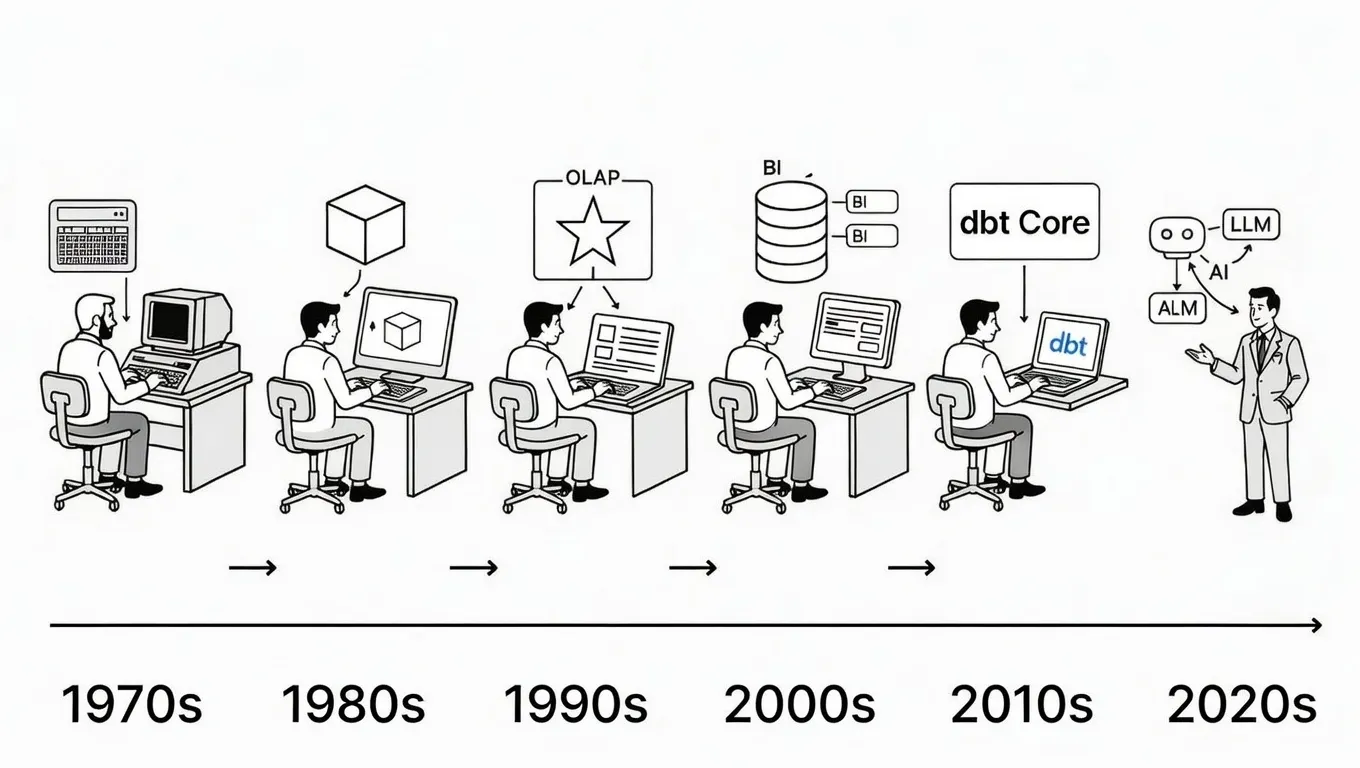
Why We’ve Tried to Replace Data Analytics Developers Every Decade Since 1974
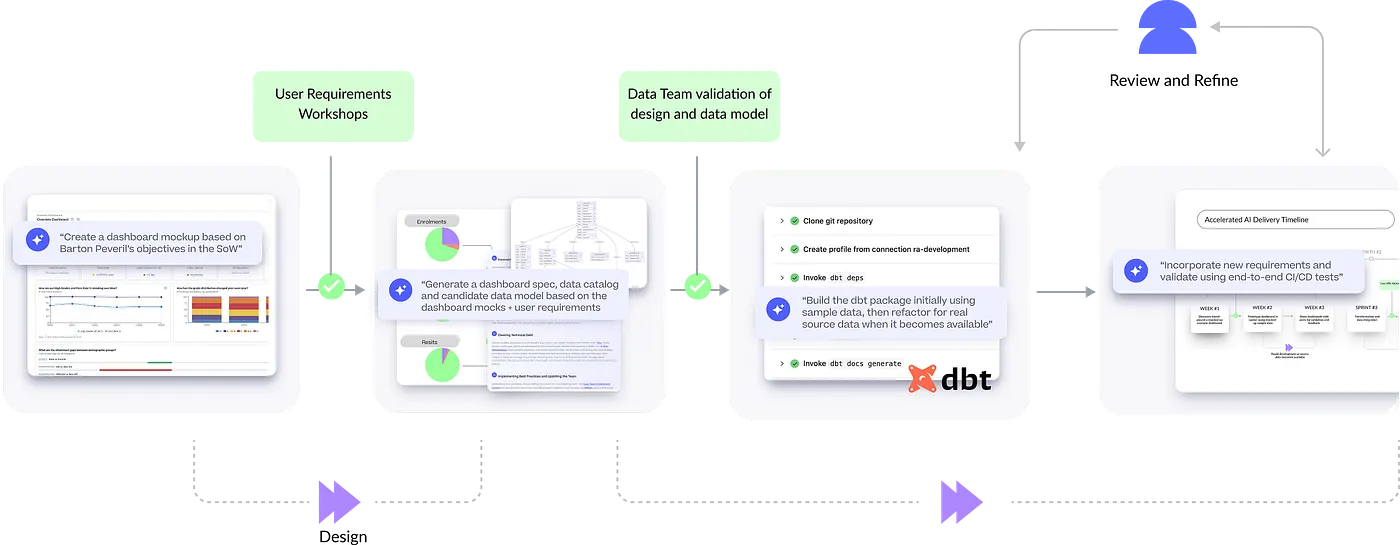
How Rittman Analytics uses AI-Augmented Project Delivery to Provide Value to Users, Faster
